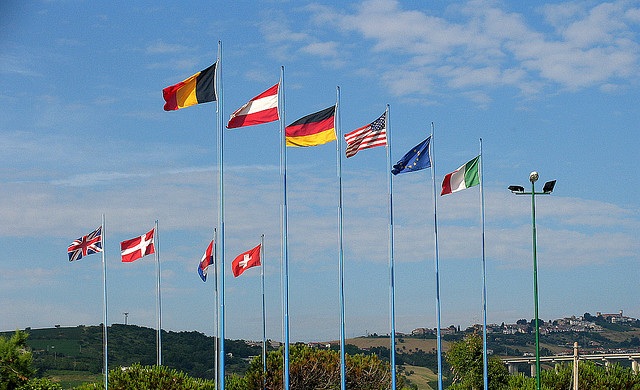Stock markets around the globe treaded downhill in reaction to the planned bailout of Cyprus that will see deposits in banks within the island state charged a one-time levy to avert bankruptcy – a move that spark public rage amongst Cypriots as well as emptying of ATM’s.

On Saturday, the European Union and the International Monetary Fund agreed a €10 billion (€8.6 billion) rescue to Cyprus’ banking system with a rider that the package will only be available in exchange for a one-off charge of between 6.75% and 9.9% of the bank deposits.
A run on the ATM’s ensued following the announcement as people panicked and tried to take out as much cash as they could, emptying ATM machines hours later, with the government subsequently taking measures to prevent further withdrawals and money transfers.
Banks around the country are closed and will likely be closed until the Cypriot Parliament decides on the proposed bailout terms that drew criticism from citizens and economists alike.
What Happened?
Cyprus was heavily exposed to the financial troubles in Greece, which it provided loans worth about 160% of its gross domestic product, according to reports.
The tax on deposit, however, will be the first of its kind to be imposed by the 17-member single currency area as part of the bailout deal, which, according to economists, may provide a precedent if another bailout happens within the region.
Bailouts of EU member nations in the past had only imposed budget cuts, asset disposals, and tax increases, but had never touched on bank deposits.
The proposal, still to be ratified by Cyprus’ parliament, seeks to impose a tax of 9.9% on bank deposits above €100,000 and 6.75% for deposits €100,000 and below – a sanction that caused a shock to depositors, who are legally protected by deposit insurance up to the said amount.
To compensate for the said tax, depositors will be given shares to the bank equivalent to the levied amount and will be given bonds if they keep their deposits in the next two years.
Avoiding Bank Runs
Cyprus’ newly elected President, Nicos Anastasiades, said the country had no choice but to accept the deal otherwise risking the collapse of two of the biggest banks, which were heavily exposed to Greece’s collapse.
The country’s 56-member parliament, of which the President’s Democratic Rally party only has 20, has postponed its vote whether to accept the terms or not until Tuesday, 19th March.
Should the parliament vote against the deal, the banks – which hold about US$90 billion worth of deposits – will likely to remain closed to prevent massive withdrawals.
Markets Down
The FTSE 100 partially recovered but was still down 0.58% to 6,451.84 and Dax lost 1% to 7,962.36 by 1:00 PM GMT. In Asia, Japan’s Nikkei 225 closed 2.7% lower whilst the Hang Seng also ended 2% below Friday’s close.
In currency markets, the Euro also fell 0.3% against the US Dollar to €1.29 whilst the Sterling gained 0.4% against the Euro to £0.85.

















